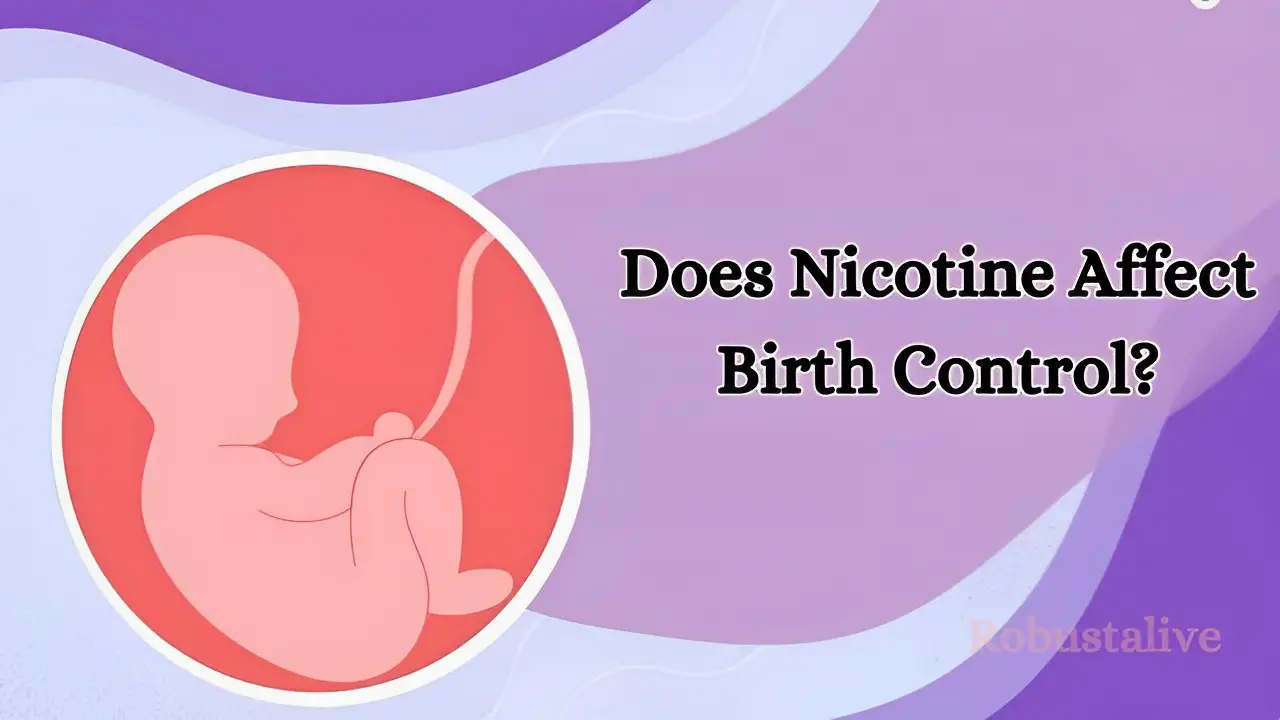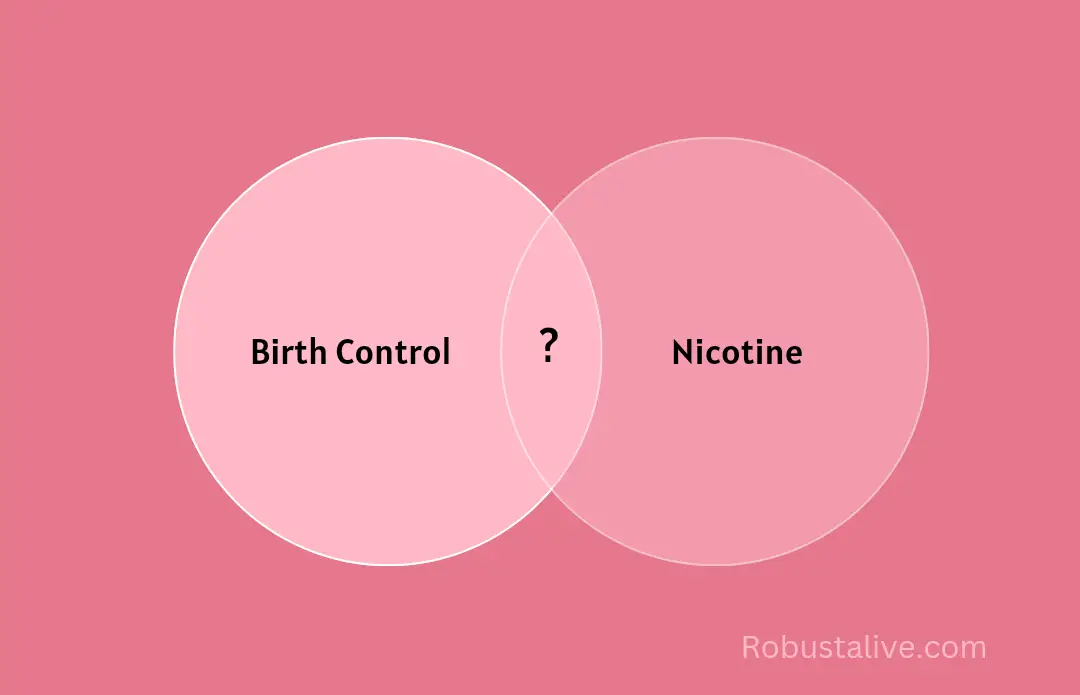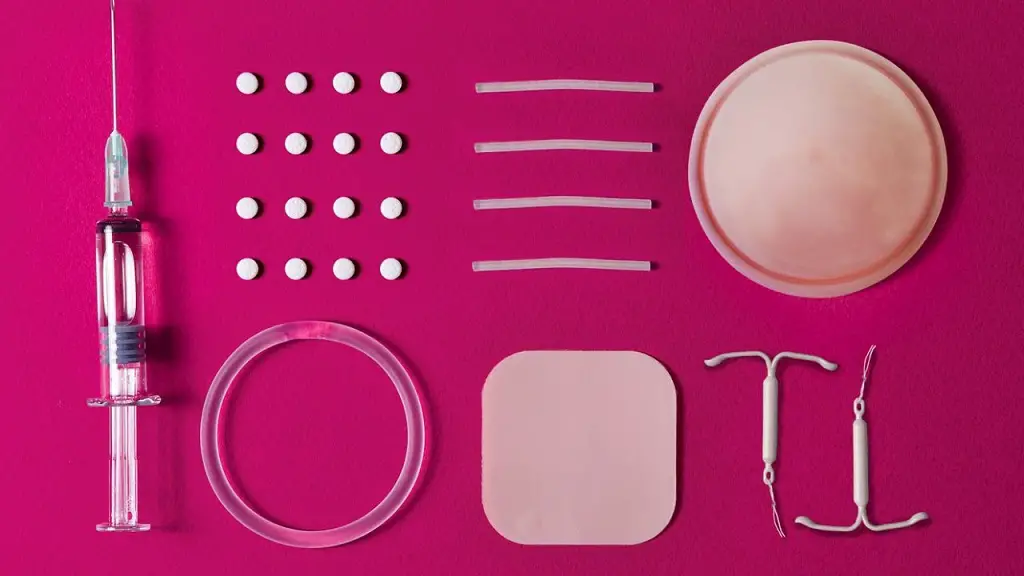Does Nicotine Affect Birth Control?

US women between the ages of 15 and 49 use birth control to avoid pregnancy, but many of them aren’t aware that certain types of birth control can cause serious problems when used by smokers.
So, does nicotine affect birth control?
Nicotine reduces the effectiveness of birth control and increases the risk of serious health issues, such as blood clots, strokes, and heart attacks. This risk is particularly heightened if you are over 35 years old and smoke. Vaping with nicotine also poses risks. It is advisable to consult your healthcare provider regarding your smoking habits; they can help you choose a suitable method of birth control. If you quit smoking for an entire year, using birth control containing estrogen is a safer option.
In this article, we will explore the relationship between nicotine and birth control. Also, it will provide you with which methods are safe for smokers and which should be avoided. Stay with us!
What Is Nicotine?
Nicotine, a naturally occurring chemical found in tobacco plants, serves as the primary active ingredient in tobacco products like cigarettes, cigars, and pipes. Its stimulant properties facilitate accelerated communication between the body and the brain.
The Effects of Nicotine
- It affects your brain and behavior, making you feel different.
- It becomes hard to stop smoking because it’s addictive, and you want more.
- If you try to quit, you might go back to smoking quickly.
- Smoking reinforces the habit, making you want to smoke more.
- Over time, you need more nicotine to feel the same effect.
- When you try to quit, your body can feel bad because it’s dependent on nicotine.
Effects on the central nervous system:
- Dizziness
- Lightheadedness
- Abnormal sleep disturbances
- Risk to blood flow
- Headache
Effects on the cardiovascular system:
- Atherosclerosis
- Aortic enlargement and dissection
- Increased clotting
- Fluctuating heart rate
- Increased blood pressure
- Coronary artery disease
- Tachycardia
- Arrhythmias
Effects on the respiratory system:
- Shortness of breath
- Chronic obstructive pulmonary disease (COPD)
- Bronchospasm
- Cancer
Effects on the muscular system:
- Spinal disc degeneration
- Joint pain
- Tremors
Effects on the gastrointestinal system:
- Peptic ulcers
- Diarrhea
- Nausea
- Dry mouth
- Heartburn
- Dyspepsia
- Cancer
It’s crucial to be aware of these harmful effects and consider quitting smoking or using tobacco products to protect your health.

Does Nicotine Affect Birth Control?
Nicotine has a notable impact on the effectiveness and safety of certain birth control methods, especially when combined with smoking. Extensive research indicates that smoking cigarettes while using hormonal birth control, such as combination pills, patches, or rings, can have serious cardiovascular consequences. These risks encompass a higher likelihood of experiencing stroke, heart attack (myocardial infarction), and blood clots (venous thromboembolism).
Combination hormonal birth control methods contain estrogen and progestin to prevent pregnancy by suppressing ovulation and thickening cervical mucus to impede sperm movement. However, elevated levels of estrogen can also lead to changes in blood composition and heighten the risk of blood clot formation.
So, what are the risks of taking nicotine while on birth control?
- Increased risk of heart attack and stroke.
- Higher chance of growing blood clots.
- Elevated blood pressure and heart rate.
- Irregular bleeding or spotting.
- Potential interference with hormonal birth control’s effectiveness.
- Heightened cardiovascular risks for smokers aged 35 and above.

Source: indianexpress
The Risks And Consequences
The risk of blood clots associated with birth control pills is generally low, affecting approximately 1 in 3000 women who take them. However, smoking can significantly increase this risk. Nicotine compounds the issue by causing an elevation in blood pressure and heart rate, adding stress to the already affected blood vessels due to the presence of additional estrogen found in the contraceptive pill. Therefore, both the World Health Organization and the
American College of Obstetricians and Gynecologists (ACOG) strongly discourages using combination hormonal birth control methods if you are a smoker above the age of 35. Smoking while on these types of birth control greatly enhances the chances of experiencing potentially life-threatening cardiovascular events.

Source: Healthline
Furthermore, research from three large clinical trials found that smokers taking the pill were more likely to experience spotting or bleeding than non-smokers. This suggests that nicotine might influence how the body breaks down estrogen, leading to irregular bleeding. This concern is essential as spotting might discourage people from continuing to take the pill, putting them at risk of an unintended pregnancy.
Can I Take Birth Control If I Vape?
The risks associated with using e-cigarettes or vaping products that contain nicotine while on hormonal birth control are comparable to those of smoking conventional cigarettes. It is important to note that most e-cigarettes also contain nicotine, which has been found to elevate blood pressure and heart rate. Therefore, individuals on hormonal birth control should refrain from consuming any nicotine-containing products.

Source: saude.abril
Which Birth Control Options Are Safe To Use While Smoking or Vaping?
If you smoke and are considering birth control options, avoiding combination hormonal birth control methods like the pill, patch, and ring is best.
Instead, consider non-hormonal birth control options like the copper IUD or barrier methods such as condoms, diaphragms, sponges, or cervical caps. Progestin-only contraceptives like the mini pill, hormonal IUD, or the shot can also be viable alternatives, as they do not interact with smoking or increase cardiovascular health risks.
Moreover, smoking can impact your fertility, so quitting smoking is a good idea if you plan to have children in the future.
Here’s a simple table listing birth control methods and their safety while smoking:
| Birth Control Method | Safety While Smoking |
| Nonhormonal (Condoms, Diaphragm, Spermicide, Copper IUD) | Safe |
| Progestin-Only Pills | Safe |
| Levonorgestrel-Releasing IUD | Safe |
| Combined Hormonal Pills: Birth control pills containing both estrogen and progestin like Desogestrel (Gedarel, Marvelon, Mercilon), Gestodene (Femodene), Drospirenone (Eloine, Lucette, Yasmin, Yacella, Yiznell), Norelgestromin (Evra), and Estonogestrel (Nuvaring). | Not Safe |
| Birth Control Patches, Vaginal Rings, Injections like DMPA | Not Safe |
Talk With Your Doctor
Given the risks associated with smoking and birth control, having an open and honest conversation with your healthcare provider before starting any contraceptive method is crucial. Informing them of your smoking history is essential, as they will consider this information while recommending the most suitable birth control option.
Can I Start Using Hormonal Birth Control If I Quit Smoking?
If you quit smoking, it typically takes around 12 months for the risk of heart problems associated with smoking to decrease by half. When considering the use of hormonal birth control, especially pills containing estrogen, it’s important to be cautious since they can add to this risk.
To minimize potential harm to your heart health while working towards a smoke-free lifestyle, it is highly advised to opt for birth control pills that only contain progestin until you have successfully quit smoking for an entire year.
What Are The Different Ways People Consume Nicotine?
There are several ways people consume nicotine:
- Smoking Cigarettes: This is the most traditional and common way of consuming nicotine. The smoke emitted from burning tobacco contains nicotine and numerous harmful chemicals. This act of inhaling the smoke adversely affects one’s health, significantly increasing the likelihood of developing various diseases, such as lung cancer, heart disease, and stroke.
- Vaping: This smoking alternative has gained popularity with the use of electronic cigarettes or vaping devices. These gadgets heat a liquid, which contains nicotine, to produce an inhalable vapor. While vaping exposes users to fewer harmful chemicals compared to traditional smoking, it is important to acknowledge that it is not entirely without risks. Its long-term effects are still under investigation.
- Nicotine Patches: Nicotine patches serve as a form of nicotine replacement therapy. These adhesive patches are applied to the skin, releasing nicotine gradually into the body. They effectively alleviate withdrawal symptoms experienced by individuals trying to quit smoking.
- Nicotine Gum: Nicotine gum is another form of nicotine replacement therapy. It’s chewing gum that contains nicotine. When someone chews nicotine gum, it releases and absorbs nicotine through the lining of their mouth. Similar to nicotine patches, this gum can effectively alleviate cravings and withdrawal symptoms for individuals who are quitting smoking.
- Nicotine Lozenges: The nicotine lozenges, small tablets that dissolve in the mouth, are designed to release nicotine. This nicotine is then absorbed through the lining of the mouth. Similar to nicotine gum, these lozenges help manage cravings and withdrawal symptoms for individuals attempting to quit smoking.
- Smokeless Tobacco: Some people use smokeless tobacco products like chewing tobacco or snuff, which also contain nicotine. Unlike smoking, these products are not burned; users place them inside their mouths to absorb nicotine through the tissues.
It’s important to remember that nicotine is addictive, regardless of how it’s consumed.
Does Smoking Marijuana Affect Birth Control?
No evidence currently suggests that smoking marijuana affects the effectiveness of birth control methods such as pills, patches, or implants. Therefore, in this regard, the use of weed does not diminish the reliability of birth control in preventing pregnancy.
However, when considering marijuana, it is important to take into account its active ingredients known as cannabinoids, such as CBD and THC. These cannabinoids have the potential to impact various bodily functions. For example, CBD might interact with specific hormonal birth control options. This means it could potentially impact how well-estrogen-based birth control pills work, not progesterone-based ones. The research on this is still limited, so it’s unclear.
On the other hand, THC, the component responsible for inducing the sensation of being “high” when consuming marijuana, differs from other compounds. Although it does not directly diminish the effectiveness of birth control methods, it can produce side effects that might exacerbate adverse reactions in relation to specific hormonal contraceptives. For instance, THC and estrogen-based birth control pills can raise blood pressure, which may be a concern for individuals with a history of hypertension or heart conditions.
Furthermore, further research is required to fully comprehend the potential impact of marijuana on the female reproductive system. The endocannabinoid system, responsible for egg production and embryo development, is influenced by THC. Nonetheless, clear evidence regarding its significant effects on reproduction is still lacking.
Lastly, smoking marijuana carries certain risks including, potential addiction, increased susceptibility to injuries, and adverse mental health effects.
How Can Smoking Affect Fertility And Chances of Getting Pregnant?
In simpler terms, smoking can hinder fertility in both males and females.
- For women, it can have detrimental effects on their eggs, making conception more challenging. Additionally, it can disrupt the menstrual cycle, causing irregularities.
- Smoking is also linked to an earlier onset of menopause, cutting short a woman’s fertile years. When attempting to conceive, smoking prolongs the time it takes to get pregnant for female smokers compared to non-smokers.
- Moreover, smoking undermines the success of fertility treatments like IVF, necessitating additional attempts. Lastly, smoking during pregnancy poses risks to the baby and increases the likelihood of complications such as low birth weight, premature labor, and birth defects.
The good news is that when someone quits smoking, their fertility can improve while reducing the risk of pregnancy-related complications. Seeking guidance from healthcare professionals and utilizing available resources is crucial for quitting smoking and enhancing overall well-being for both those attempting to conceive and their future child.
Tips To Quit Smoking
- Be clear on your reasons for quitting and use them as motivation.
- Choose a stress-free time to stop and create a quitting plan.
- Seek support from family, friends, and colleagues.
- Replace smoking with healthier activities.
- Engage in daily exercise.
- Get enough quality sleep and rest.
- Maintain a balanced diet.
- Consider joining a support group or cessation program.
- Utilize online tools to create a quitting plan.
- Explore smoking cessation aids, but consult a doctor before using them.
Smoking Cessation Aids:
- Nicotine Replacement Therapies (NRTs): NRTs come in various forms, such as skin patches, chewing gum, and lozenges. They deliver controlled amounts of nicotine to reduce withdrawal symptoms and cravings.
- Inhalers and Nasal Sprays: These NRTs deliver nicotine through the mouth or nostrils and can be effective for those who prefer a more hands-on approach.
- Bupropion SR (Zyban): This prescription medication, originally an antidepressant, can help reduce tobacco cravings and withdrawal symptoms.
- Varenicline tartrate (Chantix): Another prescription medication that reduces cravings and blocks nicotine receptors in the brain, making smoking less pleasurable.
A combination of support, motivation, and appropriate cessation aids can increase your chances of successfully quitting smoking.
Frequently Asked Questions (FAQs)
Does Grapefruit Affect Birth Control?
Consuming grapefruit while taking birth control pills can raise estrogen levels in the bloodstream. This increase may result in potential side effects such as breast tenderness, nausea, changes in uterine bleeding, blood clots, or even breast cancer.
Can I Smoke Hookah While On Birth Control?
Smoking hookah while using birth control is not advisable, especially if the contraceptives contain estrogen. This combination can amplify the risk of severe cardiovascular side effects like blood clots and strokes. The danger multiplies when estrogen-based birth control methods are combined with smoking hookah.
Can I Drink While On Birth Control?
Alcohol consumption does not directly affect the effectiveness of birth control. It is generally safe to drink while on birth control. However, it is important to consider the potential impact of alcohol on your judgment and behavior. Excessive drinking could potentially lead to inconsistent use of birth control methods.
Conclusion
In conclusion, nicotine can seriously affect specific birth control methods, particularly when combined with smoking. When using hormonal birth control, it raises the risk of cardiovascular side effects like stroke and blood clots.
For safer options, avoid smoking and consult a healthcare provider. Quitting smoking improves health and reduces birth control risks.





